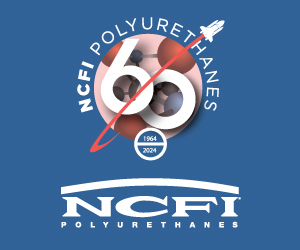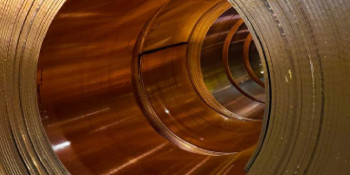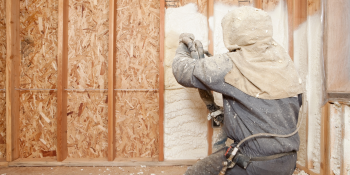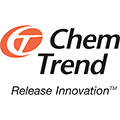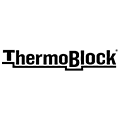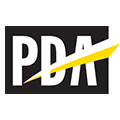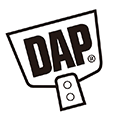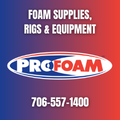Q&A Forums
R-values needed. Post New Topic | Post Reply
| Author | Comments |
|---|---|
|
Kyle Smith
Posted: Dec 22, 2008 09:14 AM
|
R-values needed.
I am going to be working in Charlotte North Carolina and am trying to find the needed R-value for vaulted ceilings. I am pretty sure it is R-19... But can't find it in writting. If anyone knows or knows where I can look it would be greatly appreciated. Thanks.
|
|
mason
Posted: Dec 22, 2008 10:30 AM
|
Actually according to the International Residential Code, Charlotte is right on the border between a zone 3 and zone 4 climate. In zone 3, you would need an R 30 in the ceiling, in zone 4 an R 38. This is based on the 2006 IRC. |
|
mason
Posted: Dec 22, 2008 10:37 AM
|
I checked it out in my code book map and list of counties. It looks like Charlotte is in zone 3, so R 30 would apply. |
|
Kyle Smith
Posted: Dec 29, 2008 08:46 AM
|
For some reason I thought that in a vaulted ceiling area I was able to install a lesser R-value. I think other dealers in the area are using R-19. I don't know if or how or why the inspectors are approving it... Thanks for the help. |
|
Posted: Dec 29, 2008 03:17 PM
|
I am around a lot of new construction especially after Hurricane Katrina and Rita and the thing that aggravates me about the spray foam requirements for vaulted ceilings is that if no foam would be applied, the contractor wwould simply fill the rafters with that cheap cellulose insulation from Lowes or Home Depot and the code inspector wouldn't even think twice. Why would the code inspector be so concerned about the amount of insulation that spray foam applicators put into vaulted ceilings if they are not concerned about non-spray foam cellulose insulation applied by minimum wage Lowes employees? Just my thought for the day! |
|
mason
Posted: Dec 30, 2008 12:16 PM
|
I don't know how it works in your area. But the code officials should be consistent. The codes don't allow less cellulose or fiberglass R values than SPF. In some areas, code officials have allowed less sprayfoam due to its better performance in attic and wall energy performance tests. Have you shown the code officials SPF specific test data that demonstrates its greater energy efficiency? |
|
Kyle Smith
Posted: Dec 30, 2008 02:20 PM
|
I have shown them a couple of articles and some other reseach I had handy but, anything you may have handy would probably be more official and help more I think. Thanks |
|
mason
Posted: Dec 30, 2008 03:34 PM
|
Email me at masonknowles@aol.com and I will send you copies of reports on ORNL attic testing and ATI wall performance testing conducted by SPFA. |
|
Posted: Dec 30, 2008 08:58 PM
|
Perhaps I should have worded the post a little differently. I really don't spray a lot of residential homes (1-2 per month tops). These are mostly for family and friends of friends, etc.. I specialize on freezers, coolers, food processing and of course Spray Foam Roofing. However, I cover quite a bit of area from Lafayette, La to Slidell and north to Alexandria and I interact with a few spray foam applicators who all complain about code enforcement. The problem usually lies in the fact that in our areas, code inspectors aren't going into the attics to measure the amount of cellulose that has been installed in the rafters. On the other side of it though, let a code inspector show up while you are spray foaming and all of a sudden the code book comes out. There is no consistancy when it comes to traditional cellulose insulation versus spray foam in my area. I would venture to say that Louisiana is not the only state that suffers from this affliction! Why is spray foam held to a higher standard than cellulose? Or is this just in Louisiana? |
|
mason
Posted: Dec 31, 2008 08:45 AM
|
SPFA is currently working on a course for code officials on SPF that should be available next year. As an authorized course provider for courses 101, 101 BE, 101 R and 101 I, I should be able to offer this course when it is available But if it is a serious issue, you don't have to wait. For example, I was hired by Miami Dade College to teach 3 separate courses to Florida building code officials how to inspect sprayfoam roofing systems. Contact your suppliers and ask them if they would help sponsor a course for code officials on SPF. I would be happy to get involved. |
|
Posted: Dec 31, 2008 07:11 PM
|
Hi Mason I think that would be an excellent idea. It would benefit both CPI's and Apex's customers to get together in New Orleans and take the initiave. I will get with CPI and recommend! Thanks, Steve |
|
mason
Posted: Jan 01, 2009 10:36 AM
|
Coincidentally, I have cousins in Layfayette and my uncle lived in Lake Charles. I used to spray a lot of foam in East Texas and Louisiana. Cold storage, alligator farms, refineries, shopping centers and a lot more. My father's parent company in the 50s and 60s was located in Orange Texas just across the river from Lake Charles. A few distinct advantages of SPF in that area is its ability to increase a building's resistance to high winds (both inside and outside) and resistance to water penetration during floods. I have a presentation titled "SPF Beyond Insulation" that deals with these benefits. |
|
Jim Coler
Posted: Jan 03, 2009 10:49 AM
|
OK, if you look at the codes, let's all admit it that the Fibergalss industry has established the code values necessary. This is demonstrated when they recently tried to federally pass a mandatory R-49 in attics, but the legislators saw through this and saw that it was R-49 means more material and this means more sales dollars for the fiberglass industry and that some products like foam are performing better than fiberglass at lower R-values. So the codes are based on fiberglass and fiberglass doesn't "perform" as it states. It typically performs at about 30-50% of it's stated R-value with the way it's installed, defects in the material, colder temps, and air infiltration. The R-value measurement is a laboratory test under certain specified conditions which are not realistic to real life installed conditions. It measures conduction only and exclused convection and radiant heat transfer. So, it's like measuring the amount of electric energy a solar panel can produce on a sunny day and calling it that for all days. Some days are cloudy and you won't get the same performance. The fact is, there is a problem with our codes systems and they assume that R-value is an equal measurement under all conditions. when it's not. Until we get this fixed and have a real baseline measurement, we're all going to continue fighting this. Spray foam out performs fibergalss and cellulose, but the codes don't recognize this yet and very few code officials understand this. Best of luck! |




